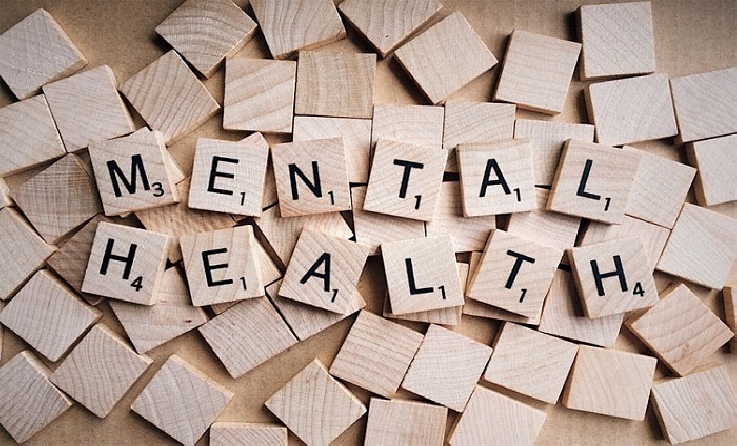
Emotional well-being is an essential component of our overall health and happiness.. However, women's mental health often remains underemphasized and insufficiently addressed. In a world where women navigate unique roles, expectations, and challenges, it is vital to prioritise and advocate for their mental well-being. This blog delves deep into ten compelling reasons why we must pay close attention to women's mental well-being. By examining the intricate web of factors affecting women's mental health, we aim to raise awareness, foster understanding, and underscore the critical importance of nurturing women's emotional and psychological well-being.
Gender-Specific Mental Health Challenges

Women's mental health experiences are significantly influenced by gender-specific challenges related to biological, hormonal, and societal factors. Understanding these unique challenges is vital for providing effective, targeted care and support.
Women's mental health is not a one-size-fits-all issue. It is essential to recognize that women face a unique set of challenges, both biological and societal, that can impact their mental well-being. These challenges are often overlooked, leading to a lack of gender-specific mental health support.
Disproportionate Vulnerability to Mood Disorders
Women are more prone to experiencing mood disorders such as depression and anxiety. Recognizing this vulnerability is crucial, as it significantly impacts their daily lives, relationships, and overall well-being.
The statistics on mood disorders among women are concerning. The prevalence of depression and anxiety is notably higher in women compared to men. This gender disparity points to the need for more targeted mental health interventions and support systems for women.
Societal Expectations and Multiple Roles
Societal norms and expectations often place an additional burden on women. They are expected to excel in diverse roles simultaneously, from caregiver to professional. The multifaceted expectations contribute to heightened stress levels and potential mental health challenges.
Women are frequently expected to juggle multiple roles and responsibilities, including those of a caregiver, homemaker, and professional. The pressure to excel in these diverse roles can lead to elevated stress levels, burnout, and, in some cases, mental health challenges.
Trauma and PTSD
Women are more likely to experience traumatic events such as sexual assault and domestic violence, which can lead to post-traumatic stress disorder (PTSD). Recognizing the need for trauma-informed care is essential.
Women are at a higher risk of experiencing traumatic events such as sexual assault, domestic violence, and childhood abuse.. Recognizing and addressing these traumas with trauma-informed care is crucial for women's mental well-being.
Body Image and Eating Disorders
Societal pressures related to body image can contribute to the development of eating disorders in women. Understanding these pressures and recognizing the signs of eating disorders are vital steps in providing support.

Barriers to Seeking Help
Stigma, lack of awareness, and the affordability of mental health care are significant barriers to women seeking help. Addressing these barriers is essential to ensure that women receive the care they need.
Despite the prevalence of mental health challenges among women, several barriers hinder them from seeking help. Stigma, lack of awareness, and the cost of mental health care are significant obstacles that need to be addressed to ensure that women receive the support they require.
Impact on Physical Health
Women's mental health has a profound impact on their physical well-being. Unmanaged stress and mental health issues can lead to various physical health problems. Thus, mental health care is a vital component of overall health for women.
Women's mental health is not limited to their emotional and psychological well-being; it also profoundly affects their physical health. Unmanaged stress, anxiety, and depression can lead to a range of physical health issues, including cardiovascular problems, weakened immune systems, and chronic conditions. Recognizing the interconnectedness of mental and physical health is essential for women's overall well-being.
Women as Pillars of Support
Women often play crucial roles in their families and communities as pillars of support. Prioritising their mental health not only benefits them individually but also strengthens the support structures they provide to others.
Women are often the emotional and social anchors in their families and communities. Prioritising their mental health is not just a matter of personal well-being; it also strengthens the support structures they provide to others. When women are mentally healthy, their capacity to support and uplift those around them is enhanced, contributing to stronger families and communities.
Conclusion
Women's mental health is a topic that warrants our utmost attention, understanding, and proactive action. By acknowledging the unique challenges women face and recognizing the critical importance of their mental well-being, we can create a more supportive and inclusive society. Empowering women to prioritise their mental health is not just an individual benefit but a collective one, fostering stronger, healthier communities and a more compassionate world. Together, we can ensure that women receive the care and support they need to thrive emotionally and psychologically.

Dr. Monica Shrestha
Consultant General SurgeonJalandhar, Punjab, India























